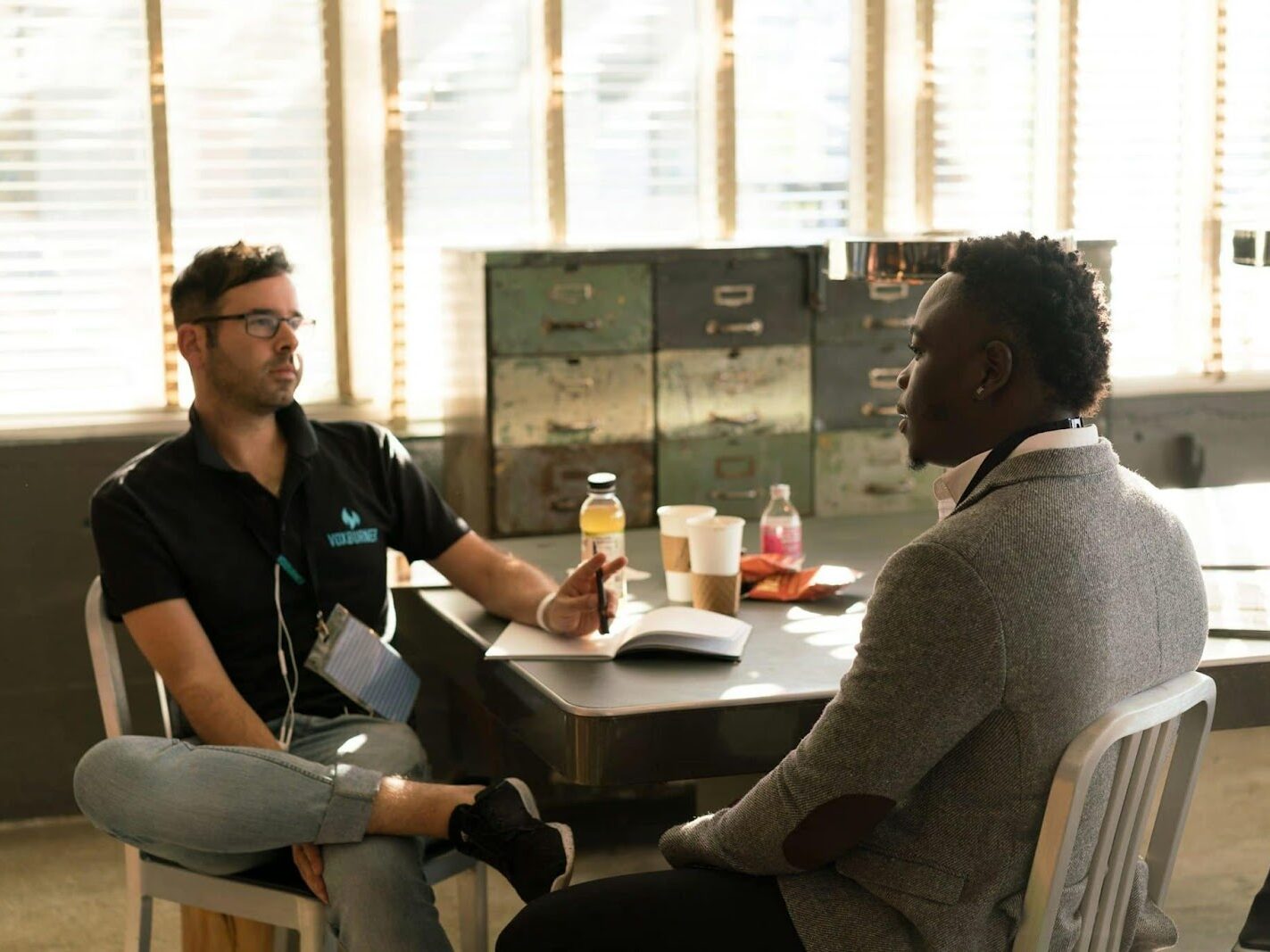Good communication is at the core of every successful enterprise. In Indiana businesses, since communities here are culturally and linguistically diverse, being inclusive matters more to businesses than offering a product or service to all. Being inclusive simply means that all consumers — not limited by abilities — can have access to your services in their entirety, unhindered. One very crucial step towards making such inclusions is to use American Sign Language interpreting services.
ASL is spoken by numerous Deaf and hard-of-hearing Americans. Indiana businesses can demonstrate their commitment to providing equal access, enhancing their customers’ satisfaction, and broadening their base by including ASL interpreters in their day-to-day operations.
Coast-to-coast, nationwide ASL interpreting services make it easy and practical to include ASL interpreters in their operations, providing scalable, professional, on-demand solutions that break down communication barriers for Deaf and hard-of-hearing consumers.

Understanding the Communication Gap
Despite technological advancement and awareness regarding accessibility, hard-of-hearing and Deaf communities still face high barriers to conducting business. From doctor’s appointment to legal consultation, financial service, to shopping encounter, communication breakdown leads to confusion and frustration, and eventually, business loss.
In Indiana, as in other cities across the nation, where Indianapolis and Fort Wayne as other urban centers become increasingly diverse, not making communications accessible is not just civic duty but it is also strategic imperative.
Not to is to disenfranchise an active and underrepresented segment of society. Also sadly, it is most likely to break legal requirement under the Americans with Disabilities Act (ADA), whereby services that face towards the public must become accessible to individuals with disabilities, including to individuals with hearing loss.
By offering ASL interpreting services proactively, companies not only achieve compliance with regulations but also foster an environment that is open, trust-based, and respectful. What it shows is that every customer matters — regardless of their communication style.
The role of Nationwide ASL Interpreting Services
Nationwide ASL interpreting services offer a bridge between the world of hearing individuals and Deaf/hard-of-hearing individuals. Free from geographical constraints, these services offer an ideal solution for Indiana companies that demand instant and constant access to experienced interpreters. Whether for face-to-face contact, remotely over video, or reserved for an event, these services match the company’s needs as much as their clients.
For businesses with offices across Indiana or businesses offering virtual services to clients across the country, working with a national provider facilitates standardization of service. Administrative convenience is also avoided in searching for local interpreters for every requirement, with access to one massive network of qualified professionals with experience in a wide range of industry-specific language — from law and medicine to education and retail.
These services are even available on-demand, being quite handy for walk-ins or unexpected interpreting needs. In mere clicks, one can connect their business to an experienced interpreter and complete the customer interaction without interruption. Such support not just enhances customers’ experience but also enhances employee confidence in handling diversified communications needs.
Boosting Customer Experience Through Accessibility

Every touch point between one company and one consumer is cumulative to the overall experience. For Deaf consumers, having an experienced ASL interpreter available can transform an experience that might otherwise have been exasperating to an exceptional, empowering one. It signals that the company is prepared, respectful, and welcoming, all highly desired by consumers today.
Disability accessibility is not something to tick on an accessibility checklist. Disability accessibility is making sure that individuals feel heard, seen, and valued. By making ASL interpreting services available, sign language users can have meaningful conversations about their needs, ask questions, and express their preferences in the same way that any other consumer might. Such an encounter builds brand trust and customer loyalty.
In competitive markets, this is one that sets them apart. Individuals let others know where they have been made to feel at home, and word-of-mouth goes quickly — especially in close-knit communities. An Indiana business that earns the trust of Deaf or hard-of-hearing customers is bound to receive repeat business and referrals for new clients. This is an investment in relationships with social as well as economic rewards.
Empowering Employees: Diversity in the Workplace
Not just clients benefit from ASL interpreting services. Accessibility organizations also offer better working conditions for Deaf or hard-of-hearing employees. Whether for meetings, training sessions, or for just routine communication, having the ability to use interpreters allows all workers to participate and perform their jobs effectively.
Inclusive communication fosters collaboration and builds positive company culture. As workers see their employer going that little extra to cater to divergent communications needs, it improves morale and confidence. Also, it paves the way for more talent, as companies can attract more qualified candidates from a wide talent pool.
Since Indiana’s competitive business climate is such that attracting and retaining talent is an ongoing challenge, inclusivity is not only a virtue — it’s a competitive edge. By providing ASL interpreting services, forward-looking thinking is demonstrated that is appealing to both customers and employees who share an interest in diversity and equity.
Moving towards an accessible future
The future is one in which everyone is included. As society becomes more aware of accessibility, increasingly, customers expect to see businesses reflecting those same values. Indiana businesses have an effective, professional, scalable answer to making that happen through nationwide ASL interpreting services.
The tools exist. Video Remote Interpreting (VRI) functionality makes adding an interpreter to a call effortless. Scheduling functionality offers availability for more complex or planned activities. Having levels of certified interpreters across the country available means that businesses aren’t limited by geography or scheduling. By outsourcing such services to an experienced partner, Indiana businesses can shift from intent to action on their pledge to accessibility.
Being inclusive is now not an option — it’s necessary. The businesses that will thrive in tomorrow’s world are making an investment in accessibility today. Whether an independent practice in Bloomington or an Indianapolis-based large corporation, providing ASL interpreting services opens doors to more customer relationships, legal compliance, and an equitable society.
Conclusion
Good business is built on inclusive communication. In Indiana, where we have a diverse state with communities that embrace wide-ranging needs as well as identities, using tools that ensure full participation from all individuals is not just an intelligent choice but also an ethical one. Across all sectors, using nationwide ASL interpreting services is an open-armed approach for businesses to bridge communication gaps, open doors, and treat all clients with respect and dignity.
By integrating ASL interpreting into their service experience, Indiana businesses don’t just speak to their customers — but also listen to them. And in doing so, not only do they differentiate themselves as accessible providers, but as models for inclusion.
For those who are looking for additional support, Unspoken Language Services offers interpreting services to help bridge the communication gap between the deaf and hearing communities.
Thumbnail Photo by nappy

